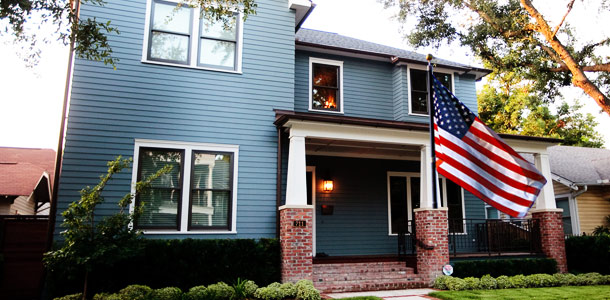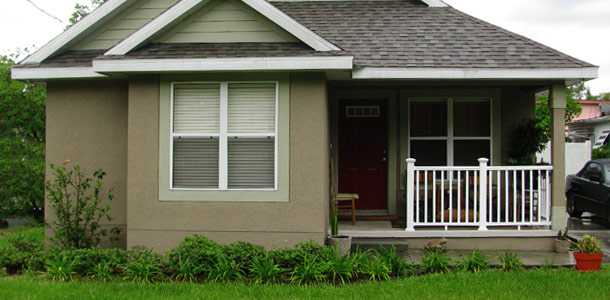 In the past several weeks I have had discussions with three different borrowers that thought they could not refinance a rental property. Each one had purchased a home in the past fifteen years and for a variety of reasons had since moved out – converting it into a rental property.
In the past several weeks I have had discussions with three different borrowers that thought they could not refinance a rental property. Each one had purchased a home in the past fifteen years and for a variety of reasons had since moved out – converting it into a rental property.
The first couple had a large five bedroom home that was too big once their children grew up, got married, and “left the nest”. Since they no longer needed so much space they moved into a smaller home nearby.
The second couple bought a small two bedroom cottage when they first got married and after having a child needed more space. They were fortunate to find a home down the street that had four bedrooms and plenty of room for their, now four person, family. Since they lived so close to their first home they rented it out to another young couple just starting out.
The third couple moved due to relocation. They love their home, their children were born there and it is full of fond memories. A job offer took them from the West to East Coast so planning to return one day – they rented it out.
Each couple had a different reason for renting out their home but in the end their situations were the same. They owned a rental, wanted to save money and thought they were stuck – unable to refinance.
The truth is rental properties can be refinanced! If you are like one of the couples above and own an investment property there are loan options available to you. The mortgage rates are higher than if you lived in the property full time but the exact rate difference depends on your unique loan and credit situation. A mortgage lender that specializes in non-owner occupied properties will be able to assist you in determining if, and how much, refinancing can save you. Since every property, borrower and situation is different it is important to review the various mortgage programs available.
Investment Property Refinancing Tips
2. Document Rental Income: Rental income should be reported on your tax returns on Schedule E. Whoever prepares your taxes will need to list out the total rental income received for the year and document expenses associated with the property such as repairing the roof or a monthly lawn service. Be careful not to fall temptation to running additional expenses through the rental property as a “write off”. Not only can this get you in trouble with the IRS but it hurts the income you are claiming. A lender will use your rental income in combination with earnings from your job or business to determine if you qualify for the refinance. The less money you make (tax write offs lower your claimable rental income) the harder it is to qualify.
3. Maintain Insurance: Let your insurance carrier know that you are renting out your home and take out the appropriate policy. Many lenders will also require this.
4. Maintain Your Credit: Loans on rental properties typically require average or better credit scores so make sure you focus on maintaining a good credit history.
5. Contact a Mortgage Lender: Non-Owner Occupied (Rental Property) loans can be more complicated that a traditional home loan because there are additional documents that need to be underwritten. Working with a seasoned mortgage banker is a better choice than trying an online only service.
As with many things in life knowledge is power. No longer living in your home does not mean you are stuck with its current home loan forever. There are many refinance programs available for rental properties. In order to find out if you qualify, and if you can save money, contact a mortgage lender today. Working together they can present you with mortgage programs tailored to meet your needs.






















































